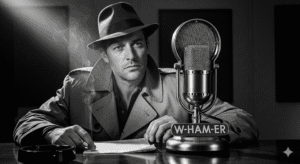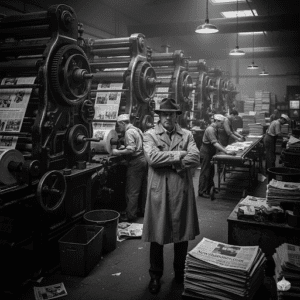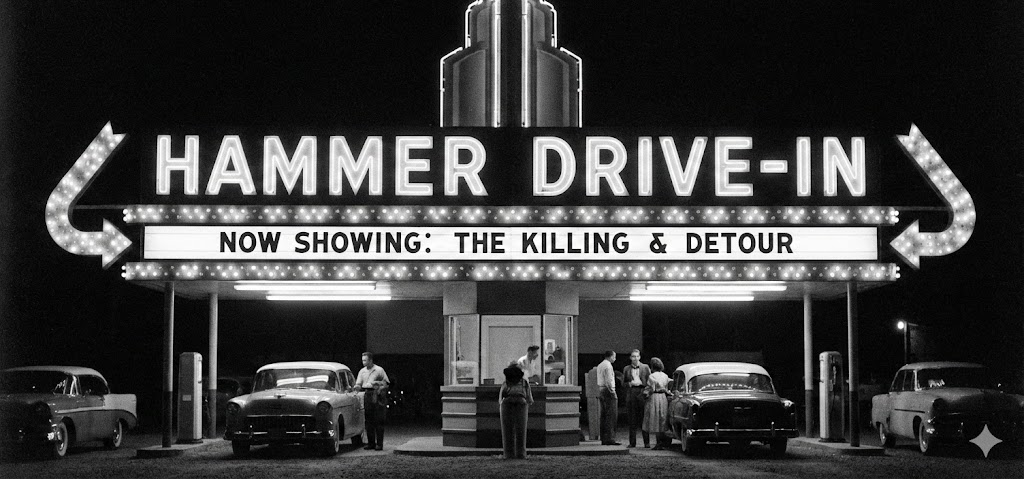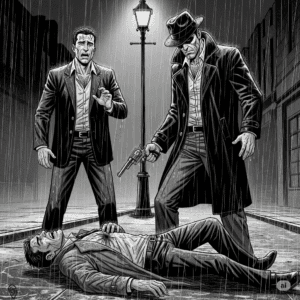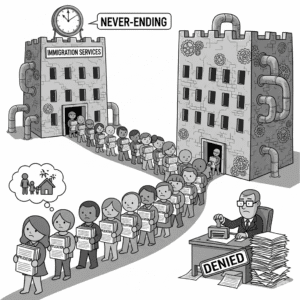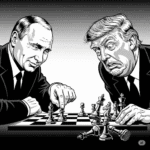The Tariff Trap
Alright, so the clock struck midnight on August 1st. Another political deadline, another promise turned to dust. Remember the grand talk? “90 trade deals in 90 days!” A master negotiator, they said, would rewrite the global rulebook faster than you can order a fast-food banquet. Well, the calendar just flipped, the deals are nowhere to be found, and what do we get instead? Another executive order, slapping fresh tariffs on imports.
Sounds like a “win,” right? Tough on foreign competition. Sticking it to the other guys. Jack Hammer’s here to tell you, that’s a load of malarkey. This isn’t some cunning strategy; it’s a bill, plain and simple, and it’s landing squarely on the dinner tables of the working-class taxpayers who were promised prosperity. This ain’t about making America great; it’s about making America pay.
The “Art of the Deal” vs. Reality’s Grind
“90 deals in 90 days.” Any half-wit with a basic understanding of global commerce knows that’s not negotiation; that’s speed dating with national economies. Real trade deals? They’re sprawling, agonizing beasts of compromise, filled with fine print, backroom haggling, and a thousand industries screaming bloody murder. They take years, not weeks. Promises like that are designed for rally chants, not actual policy.
It was a setup from the start. A deadline so absurd, it was guaranteed to fail. And when a self-imposed deadline blows up in your face, what’s the playbook? Double down on the aggression. Slap on more taxes, call it strength. It’s a classic misdirection, turning a clear failure to deliver on a sky-high promise into an act of “toughness.”
The Tariff Tax: Who Really Pays?
Here’s the dirty secret they don’t want you to know: tariffs aren’t paid by China, or Mexico, or whoever’s on the receiving end of the latest presidential tweet. Tariffs are taxes on imports, paid by American companies when goods arrive at our ports. And who do those American companies pass that cost onto? That’s right. You. The working-class consumer. The family trying to stretch a dollar.
Every time a tariff goes up, the price of that imported washing machine, that steel beam for construction, that component for your car, that clothing item – it all goes up. Manufacturers who rely on imported parts face higher costs, which means either they eat the cost (cutting jobs or profits), or they pass it on to the consumers of their products. Farmers get hit by retaliatory tariffs when other countries retaliate, losing markets for their exports.
This isn’t about foreign nations paying a penalty; it’s about American families paying more for everything from sneakers to refrigerators. It’s about American businesses struggling to compete when their input costs skyrocket. It’s a self-inflicted wound, sold as a victory.
The Blame Game: Jack Hammer’s Verdict
Let’s call it what it is: a failure to deliver on an unrealistic promise, followed by a punitive measure that punishes the very people it claims to protect. The working-class taxpayer, who was told his job was coming back and his wallet would be fatter, is now staring down higher prices at the store and uncertainty in the economy.
This wasn’t some unforeseen global crisis. This was a direct result of a policy approach that prioritizes bluster over strategy, and grand pronouncements over grinding, complicated reality. The deadline came, the deals didn’t, and now the bill lands on your doorstep.
Cut Through the Crap: You’re Paying for the Show
Jack Hammer’s seen this play a thousand times. Big promises, big talk, then when reality bites, it’s the common man who bleeds. The President signed an EO today, alright, but what he really signed was another tax increase on American consumers, cloaked in the flag-waving rhetoric of “tough trade.”
Don’t fall for the show. When you see the prices climbing on the shelves, remember the August 1st deadline, and remember who promised you the moon and delivered a tax bill instead. This isn’t about winning; it’s about paying.
Yours truly, Jack Hammer.




